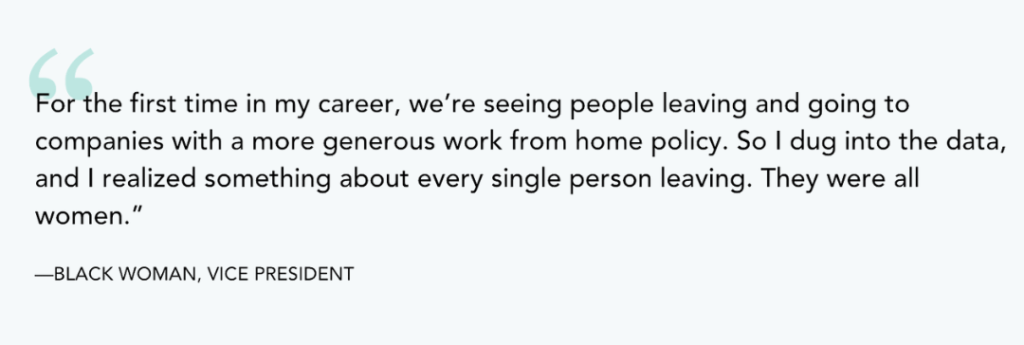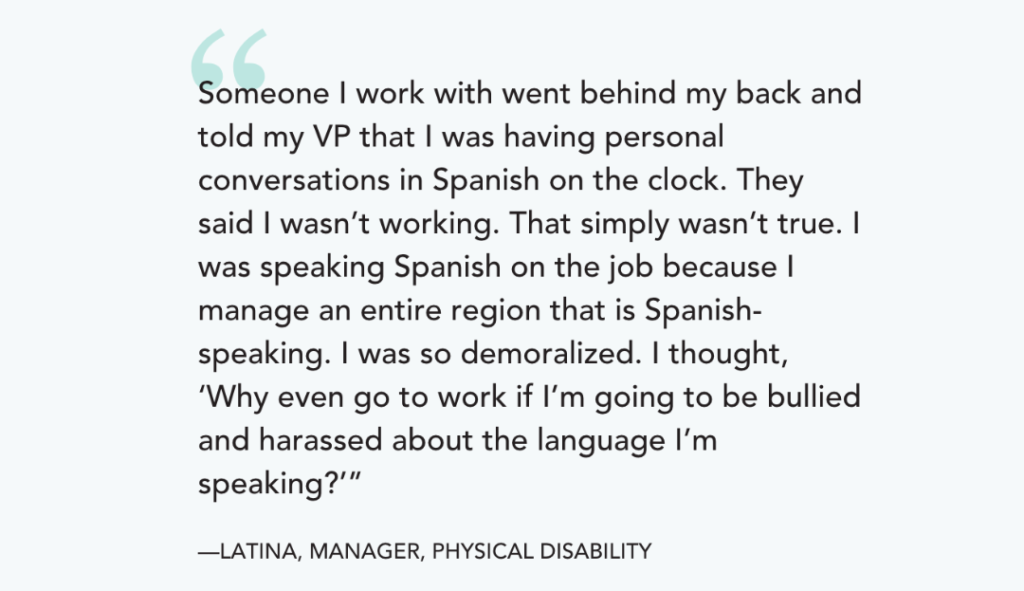WOC In The Workplace: What We Learned From The Largest Study Of Women In Corporate America

Women of color are skilled, ambitious, and talented yet they continue to be underrepresented in senior positions in the workplace.
In a recent study involving more than 300 companies and 40,000 employees, LeanIn.Org and McKinsey & Company have shed light on some of the experiences of women in the ‘post’-pandemic workplace.
Here’s what we learned about the experiences of women of color in the workplace; the challenges they face and how they are taking their careers into their own hands.
The Pipeline Problem
Women of color are still hugely underrepresented in corporate America, especially in senior leadership positions. While only 1 in 4 C-suite leaders are women, only 1 in 20 are women of color.
One significant contributing factor is the ‘broken rung.’ So for every 100 men promoted from an entry-level to a managerial position, only 82 women of color are promoted. In other words, women of color are disadvantaged at the very first step of career progression.
The chance of being promoted varies hugely within the ‘women of color’ category. For every 100 men promoted from entry-level to manager, only 75 Latinas—and even fewer Native Hawaiian, Pacific Islander, and Indigenous women—are promoted.

Retention also remains a big problem as more women are leaving their jobs for opportunities elsewhere.
Flexibility and remote and hybrid work
Women generally value flexible and remote work, especially women of color, LGBTQ+ women, and women with disabilities. At home, women reported fewer microaggressions and higher levels of psychological safety than in the office.
Read: Why Black Workers Don't Want To Go Back To The Office
Ambition vs. obstacles
The study also shows that we can’t put women of color’s lack of career progression down to a lack of ambition.
Women of color are more likely to aspire to top executive positions (41%) than white women (27%). This is especially true for Black women leaders, 59% of whom want to be top execs (compared to 49% of women leaders overall).
Despite their ambition, they face obstacles to career progression. For example, Black women leaders are more likely to have colleagues question their competence and to be subject to demeaning behavior. Also, 1 in 3 say they’ve been passed over for opportunities because of characteristics like their race and gender.
Latinas and Black women tend to feel less psychological safety at work—such as fearing being penalized for mistakes and facing microaggressions. They are also the least likely to say their manager showed interest in their career development.
Asian and Black women are less likely to report having solid allies on their teams and senior colleagues to support them. This includes support through sponsorship, public praise, and advocating for pay increases or promotions on their behalf.
Despite some pretty dire statistics, the report outlined ways employers can improve the experiences of women in the workplace. These include identifying where the largest promotion gaps lie, evaluating promotion processes, and monitoring outcomes.
While the recommendations do not specifically address the needs of women of color, we hope that the Women In The Workplace report can act as another tool in the arsenal for those who are serious about advancing equality in the workplace.
Women of color—and Black women in particular—have lofty career ambitions. It is way past the time for these ambitions to come to fruition.




